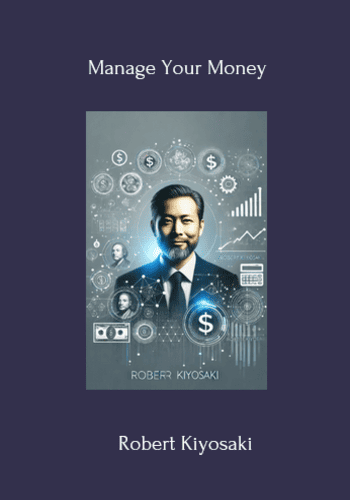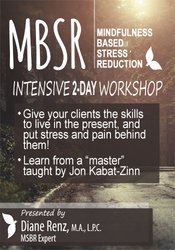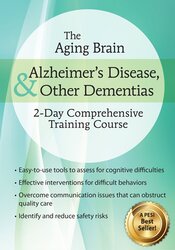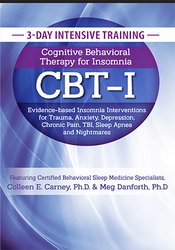Could Early Intervention Reverse Symptoms of Autism? An In-Depth Look at Current Sensory, Communication, Relationship, & Behavioral Treatments CC – Susan Hamre
Original price was: $199.99.$55.00Current price is: $55.00.
Could Early Intervention Reverse Symptoms of Autism? An In-Depth Look at Current Sensory, Communication, Relationship, & Behavioral Treatments CC – Susan H…
Salepage link: At HERE. Archive:
- Anxiety
- Chronic Depression
- Eating Disorders
- BPD
- Substance Abuse
- Narcissism
Schema therapy is an innovative, integrated therapeutic approach, originally developed (by Dr. Jeffrey Young) as an expansion of traditional cognitive-behavioral treatments. The schema therapy approach draws from cognitive-behavioral therapy, attachment theory, psychodynamic concepts, and emotion-focused therapies. In comparison to cognitive-behavioral therapy, schema therapy emphasizes lifelong patterns, affective change techniques, and the therapy relationship, with special emphasis on limited and adaptive re-parenting.
Schema therapy is particularly well suited for difficult, resistant clients with entrenched, chronic psychological challenges, including personality disorders (such as BPD and Narcissism), eating disorders, intractable relationship problems, and criminal offenders. It is also effective for relapse prevention in depression, anxiety, and substance abuse.
The results of a major comparative outcome study have shown schema therapy to be highly effective with a large percentage of outpatients with Borderline Personality Disorder, with a low dropout rate. Clients who have spent years gaining valuable insight with psychodynamic treatments, but who are frustrated by their lack of progress, often respond well to the active, systematic, flexible, and depth-oriented schema approach.
This workshop will include a combination of teaching methods, including lectures, handouts, videotapes of master schema therapists, live demonstrations, question-and-answer periods, group discussion, assessment and change strategies practice exercises, discussion of obstacles in treatment including therapist’s own schemas, and small group exercises.
- Illustrate how to assess and conceptualize challenging cases in Schema terms.
- Discuss Schema Modes and activating conditions, individually and in their primary relationships.
- Develop a robust treatment formulation based on the linking of current problems with client’s innate makeup, early unmet needs, schemas, and coping styles.
- Identify strategies for maintaining a sturdy, genuine, and healthy adult mode and model within the therapeutic setting.
- Demonstrate how to apply strategies such as: Imagery, Mode Dialogues, Empathic Confrontation, Bypassing Avoidance, Setting Limits, Adaptive (limited) Re-Parenting Stance and Behavioral Pattern-Breaking.
- Evaluate the adaptive value of coping styles by listing the pros and cons of self-defeating habituated modes.
- Incorporate visual and audio aids into therapy to fortify empathic attunement.
- Explain how to implement the Inventories: The YSQ (Young Schema Questionnaire), The YPI (Young Parenting Inventory), and the SMI (Schema Mode Inventory).
- Outline how to bypass “detached protector” modes to access necessary emotions in clients.
- Differentiate the Anger Modes and their treatment implications.
- Practice specific schema mode profiles and evidence-based treatment strategies for Borderline Personality Disorder and Narcissistic Personality Disorder.
- Identify the implications of early maladaptive schemas and self-defeating coping styles on significant others in relationships and partner selection.
Schema Theory
- Defined, Outcome Research, Designed for Personality Disorders, Chronic, and Rigid Symptom Problems
Schema Clusters
- Developmental Domains and Attachment Ruptures
18 Early Maladaptive Schemas
- Traits Derived from Unmet Needs and Temperament
Therapy Relationship
- Self-Disclosure
- Empathy
- Genuineness
Demonstrations & Group Exercises
Limited Re-Parenting / Meeting Unmet Needs
- Therapist’s Posture, Gesture, Language, Flexibility
- Empathic Confrontation and Limit Setting
Emotion-Focused Strategies
- Imagery
- Dialogues
Cognitive Strategies:
- Evidence For / Against Schemas, Dialogues
Behavioral Strategies / Breaking Self-Defeating Patterns
- Role-Plays
- Mindful Awareness
- Self-Regulating Skills
Role Play with Practice Exercises
Introduction to Schema Modes
- Innate Emotional States
- Constructed Coping Styles
- Habituated Reactions
- Self-Defeating Behavioral Patterns
Schema Modes (Continued)
- Self-Disclosure
- Empathy
Case Conceptualization With Modes
- Hypotheses and Detailing the Client in Schema Terms
Advanced Demonstrations & Group Exercises
BPD – Mode Profile (Overview)
NPD – Mode Profile (Overview)
Specific Styles and Strategies – Using Empathic Confrontation
- Implicit Assumptions
- Benefit of the Doubt
- Preemptive Measures
Bypassing Detached Protector Modes
- Use of Imagery and Mode Dialogue
Anger Modes
- Angry Child Mode
- Bully Mode
- Defiantly Avoidant Mode
- Linking Anger vs. Setting Limits: When? Why?
Advanced Role Play
Therapist’s Schema Activation and Self-Regulation Strategies
- Sturdy and Real in the Treatment Chair
Here's an overview of the prominent keywords and a list of famous authors:
Business and Sales: Explore business strategies, sales skills, entrepreneurship, and brand-building from authors like Joe Wicks, Jillian Michaels, and Tony Horton.
Sports and Fitness: Enhance athleticism, improve health and fitness with guidance from experts like Shaun T, Kayla Itsines, and Yoga with Adriene.
Personal Development: Develop communication skills, time management, creative thinking, and enhance self-awareness from authors like Gretchen Rubin, Simon Sinek, and Marie Kondo.
Technology and Coding: Learn about artificial intelligence, data analytics, programming, and blockchain technology from thought leaders like Neil deGrasse Tyson, Amy Cuddy, and Malcolm Gladwell.
Lifestyle and Wellness: Discover courses on holistic health, yoga, and healthy living from authors like Elizabeth Gilbert, Bill Nye, and Tracy Anderson.
Art and Creativity: Explore the world of art, creativity, and painting with guidance from renowned artists like Bob Ross and others.
All the courses on WSOlib are led by top authors and experts in their respective fields. Rest assured that the knowledge and skills you acquire are reliable and highly applicable.
Specification: Could Early Intervention Reverse Symptoms of Autism? An In-Depth Look at Current Sensory, Communication, Relationship, & Behavioral Treatments CC – Susan Hamre
|
User Reviews
Only logged in customers who have purchased this product may leave a review.

Original price was: $199.99.$55.00Current price is: $55.00.












There are no reviews yet.